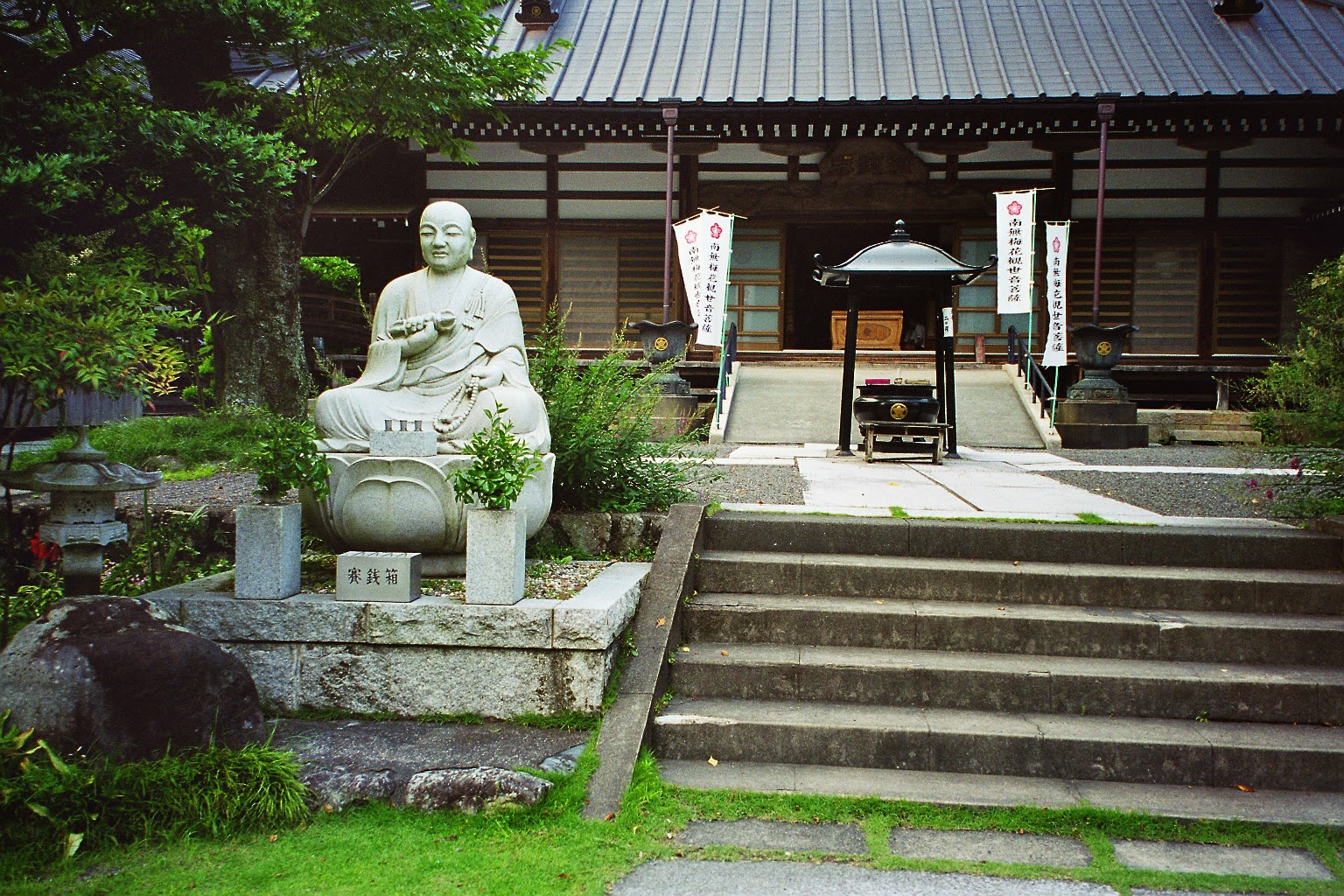The Realized Universe (Genjo kôan, Part 4)
The Dharma way is like this:
“To learn the Buddha’s truth is to learn ourselves. To
learn ourselves is to forget ourselves. To forget ourselves is to be experienced
by the myriad dharmas. To be experienced by the myriad dharmas is to let our
own body and mind, and the body and mind of the external world, fall away.”
So we have to transcend our fixations with ideas, our rigid goals for
the future and our stiff emotions, which are controlling us, and we have to
break the connected cycles of our life. In this way we can be open for new
developments and the great truth of Buddhism. It is necessary to be open to the
variety and beauty of the world and to experience people, and the many things
and phenomena of our daily lives. We should leave the fixations of a subjective
body and a subjective mind attached to the ego, and free ourselves.
In this way “our own body and mind
fall away.” If we want to find our true self, we have to forget the old ego
because Zen mind is beginner´s mind,
to quote Master Shunryu Suzuki. Even the so-called objective external world,
our body and especially our agitated mind, which is constantly looking here and
there, should fall away.
As Nishijima Roshi tells us, we have to transcend the philosophy and
views of simple idealism and materialism, because these two dimensions are
one-sided and are not the whole truth. The thinking mind will be very narrow,
if it is controlled by these philosophies. In this way it cannot become free.
This means that the world of materialistic pleasure is in reality a narrow and
poor world too. A pleasure seeker cannot find Buddha’s truth which is fine and
profound. If we lose ourselves in such superficial pleasures, we are separated
from the wonderful flower of the Dharma.
Many people are convinced that they have an ego, which is more or less
fixed and unchangeable in their lives. They may admit that we change a little
bit and of course we look different when we are young and adult. But many are
convinced that there is something like a central core in us, like a particle or
something similar, even though it’s
difficult to explain whether it is in the body or in the mind. In the religion
of Brahmanism, which existed before the time of Gautama Buddha, they called
this core Atman.
But Gautama Buddha explained very clearly that this is a big
misunderstanding of our self. And he found that because of the delusion of this Atman a lot of suffering would arise during our lives.
Master Dôgen uses the analogy of a man sailing in a boat:
“When a man is sailing along in a boat and he
moves his eyes to the shore, he misapprehends that the shore is moving. If he
keeps his eyes fixed on the boat, he knows that it is the boat which is moving
forward.”
So very often we are convinced that we have a fixed ego and that the
surrounding world is moving and changing. But this is wrong. If we observe
ourselves clearly, we can see that there is no unchanging body or mind. Of
course, this is a big opportunity for a learning process: we can develop
ourselves, we can change, we can learn and use the wonderful chances which we
have in our lives. If we have the delusion of there being a static ego which is
constant like a materialistic thing, it is impossible to act freely and to be
open for new developments and new chances.
All the possibilities of life are open in every moment
of existence time, just here and now. This can be experienced in Zazen
practice.



